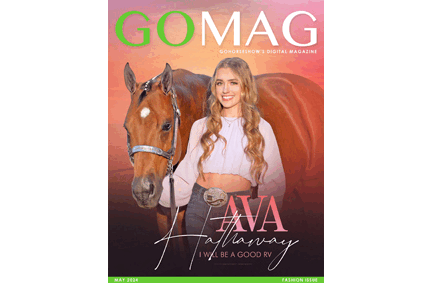In the first part of this series, we asked professional horse trainers how they dealt with the very delicate and difficult task of clients leaving their barn. Many of our readers requested GoHorseShow write another article from the clients’ perspective. We talked to several clients about their experiences and advice when changing trainers in a respectful and dignified manner including Joanne Garnett, Dan Yeager, Mary Jo Greiff, Alexandra Chavez, Anne Wilson, and Peek Owen.
Always a highly charged, emotion filled atmosphere, changing trainers can be a tough situation. People often form an emotional bond to their horse and are entrusting their trainer to take both themselves and their horse in a new direction. Trainers become our teachers, mentors and sometimes even friends or members of the family. Breaking this connection can mean many things, even going so far as to find yourself dealing with a situation that rocks your entire equine world.
[NPI
Float=”left”]/Media/2/jpg/2014/10/7170d9d9-155d-40df-ea9851837b39eb6b.jpg[/NPI]“Communication
is key,” says Dan Yeager, who currently shows Cee Money under the
guidance of Highpoint Performance Horses. “It really does become a more
emotionally based thing than a usual business transaction. You spend so
much time together, with both you and the trainer wanting the best.
Sometimes it’s hard because things aren’t going as planned and you know
your trainer is trying their best.”
Yeager, the 2014 Congress Amateur Select Showmanship Champion,
recommends talking with the trainer. You need to let them know exactly
what your goals are and even have a weekly talk about the direction
things are headed. He also says, “Sometimes your trainer will say
something that may be true, but you may not want to hear. Perhaps, you
need a new horse to compete at the level you want. Keep the dialog
coming and both of you can decide the next step. If the dialog is
working, you can both head in the right direction. And hopefully,
everyone can remain friends!”
 Amateur Alexandra Chavez from Arizona says the most challenging part of changing trainers is that often you are mixing business with pleasure. “When you are spending days together at horse shows, and seeing each other every day at the barn, you develop a relationship. Then, all hell can break loose and you can end up losing a friend!”
Amateur Alexandra Chavez from Arizona says the most challenging part of changing trainers is that often you are mixing business with pleasure. “When you are spending days together at horse shows, and seeing each other every day at the barn, you develop a relationship. Then, all hell can break loose and you can end up losing a friend!”
Chavez says that seeing former trainers at a show can be uncomfortable. While making the decision to move her horses, she was surprised that a former trainer would “cut all ties”. From now on, Chavez says she will always observe how the trainer handles a similar situation and how the client is treated in the future.
 Anne Wilson of Dallas, Texas, a five-time consecutive winner of the Amateur Showmanship at the AQHA Select World Show, has switched trainers twice in her career. According to Wilson, the first time was at her request and another time at the trainer’s request. Wilson states that both ended well. “My first trainer just wasn’t showing at all the shows I wanted to go to. After turning 50, I wanted to show more in the AQHA Select classes, and she didn’t show at the circuits I wanted to be at.”
Anne Wilson of Dallas, Texas, a five-time consecutive winner of the Amateur Showmanship at the AQHA Select World Show, has switched trainers twice in her career. According to Wilson, the first time was at her request and another time at the trainer’s request. Wilson states that both ended well. “My first trainer just wasn’t showing at all the shows I wanted to go to. After turning 50, I wanted to show more in the AQHA Select classes, and she didn’t show at the circuits I wanted to be at.”
Wilson said she was upfront and, though it was sad, it was done with respect. “She was a great trainer, great with teaching me and great with working with my horse.” The second break was at the trainer’s request. “They were going in a completely different direction,” Wilson explains. “Again, they were great. I learned a lot and enjoyed having a new set of eyes.”
When searching for a new trainer, Wilson suggests having a list of questions prior to joining the team. Wilson states she believes that is what it is–a team. Before being accepted into a barn, a trainer told her, although it was his final decision that he wanted to ask the other clients before adding another member. “I can appreciate that,” she says. “You really need the right chemistry in a barn for everyone to get along and succeed.”
[NPI
Float=”right”]/Media/2/jpg/2014/12/89293e2a-155d-40de-cead5ade90c9c75f.jpg[/NPI]Peek
Owen, who owns multiple World and Congress Champion, One Lazy
Investment, adds that although he hasn’t really had to deal with
switching trainers, he says he does have great respect for most
trainers. “It is pretty hard to please everybody all the time.” But adds
that just being straightforward goes a long way.
 “The horse and the trainer need to fit,” says Joanne Garnett, a Select Amateur World Champion on why she has switched trainers in the past. “That’s why I am where I am now.”
“The horse and the trainer need to fit,” says Joanne Garnett, a Select Amateur World Champion on why she has switched trainers in the past. “That’s why I am where I am now.”
Garnett says the largest percentage of time, the break has been easy. The Nebraska native reveals that her husband left his trainer because he was ready to go to bigger venue shows, and there were no problems. Joanne states that she has learned something new from every trainer she has been with. “They all have made me what I am today. I have taken away something from every one of them.”
Garnett goes on to say that she prizes honesty above all else. As far as making the move to another trainer, she gives this advice. “You first need to talk to a trainer that you are considering and find out if that is what you are really looking for in a program, then, make a well informed decision based on that information.”
 Mary Jo Greiff of Another Day Ranch which specializes in breeding and sales of elite reining horses, says she has a list of “red flags” that will make her move her horses. “When you decide to leave a trainer, you first must ask, what did the trainer not do for me and my horse. That is often personal, but for me either for an open, futurity, or my personal horse, I want to communicate that I am changing due to the horse not progressing as expected. I will also break up with any trainer that is hard handed and unforgiving. However, I still pay the training fees owed, and any other fees, up to the point of pulling my horse.”
Mary Jo Greiff of Another Day Ranch which specializes in breeding and sales of elite reining horses, says she has a list of “red flags” that will make her move her horses. “When you decide to leave a trainer, you first must ask, what did the trainer not do for me and my horse. That is often personal, but for me either for an open, futurity, or my personal horse, I want to communicate that I am changing due to the horse not progressing as expected. I will also break up with any trainer that is hard handed and unforgiving. However, I still pay the training fees owed, and any other fees, up to the point of pulling my horse.”
Greiff, whose ranch is located in Valley View, Texas continues, “The owners do pay the bills, but the owners also have to remember they have a huge responsibility in their interest, as the interest of most trainers is themselves. If you need to break up, do it with integrity. Pay them what you owe them and move on–hopefully, better informed and with greater knowledge. Make yourself a better horse person by being humble enough to ask and learn. If you don’t, you are neglecting your duties to your horse.”
What is expressed by everyone is that the client/trainer relationship goes way beyond a normal business relationship. There is more than just money involved. Friends are made, hopes are born and the life of your horse all come into play. That being said, communication really is the key. If things are not going in the direction you had wanted, a long conversation is in order. If the trainer cannot meet your expectations, it may be time to move on. And to quote Dan Yeager, “Hopefully everyone can remain friends.”
About the Author: Donna Jahnke has been in the horse industry for four decades. With her husband Kent, they run 4J Performance Horses in Danville, Indiana where they stand their two AQHA stallions, Smart Sailing Dun It and Day Work For Cash.









